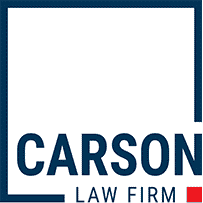The series LLC is a novel limited liability entity that promises to solve many problems of the real estate investor. This article is meant to highlight some of the pros and cons of using a series LLC in your real estate investment.
The Pros
The traditional asset protection advice that gets repeated all the time is to put each of your rental properties in a separate LLC. This is smart for a few reasons – first, and foremost, it prevents a total loss of one property from affecting your other assets. Second, it serves to mask your identity to the extent that you take to hide it. And third, it allows you to totally separate your expenses and revenues, and if need be, sell the entire LLC to someone else instead of the property for the purpose of keeping financing in place and avoiding a tax revaluation (but I didn’t tell you to do that!)
The series LLC promises to make life a lot easier for the real estate investor. Instead of setting up another LLC and paying another fee and opening another bank account for each property, the investor can set up one series LLC and be done with it. Within the series LLC, each property falls into its own individual “bucket” which is shielded from the other properties in terms of liability. Each “series” is its own mini division of the company that, for most purposes, functions as a wholly-owned limited-liability subsidiary.
Sounds great, right? There are a lot of benefits from this kind of setup, and a lot of efficiencies can be realized. But hold on to your hats, because here come the cons.
The Cons
Most of the cons of the Series LLC are rooted in its status as the new kid on the block. Courts and other authorities simply haven’t had the time to develop the necessary precedent and made the right decisions that lend some kind of certainty to the series LLC. That said, I have high hopes for it.
Twenty years ago, most lawyers were saying the same thing about the LLC itself — “we don’t know how courts will view them,” etc. Now, the time has passed, and we know how courts treat LLCs. In twenty years, this article will read in much the same way as the LLC articles of yore did back then. In any case, the major points are as follows;
1. Not all states have adopted the series LLC. This is the biggest pitfall of forming a series LLC. Only 12 states have statutes that authorize the creation of a series LLC, which essentially means that only those 12 states will recognize them. This is not going to affect you if you live and do business in a state authorizing the series LLC, but beware of anything you do within a non-series-LLC state. If you end up in court, or before an administrative body, in a non-series state, it’s quite likely that they will treat your company as a regular LLC.
2. We have no idea what will happen in bankruptcy court. What happens if one series has a catastrophic loss and becomes bankrupt? A bankruptcy estate must be opened. Is the estate opened for the series LLC itself or only the single bankrupt series bucket? Clearly, the statutes intend that bankruptcy will happen within a single series bucket only, but we don’t have any case law available to prove that the federal bankruptcy court will arrive at the correct conclusion intended by the state law.
3. The National Conference of Commissioners on Uniform State Laws doesn’t know why the series LLC is needed. This group is responsible for most of the uniform state laws on the books today. The key to the success of the series LLC is nationwide adoption, and support of the NCCUSL is critical to achieving this goal. In their recent New Draft Series Act, which covers all unincorporated business entities (don’t be misled by the title), the prefatory Note states the conference’s position fairly clearly: “What business needs does the protected series construct uniquely serve?…[T]he special advantages of protected series remain obscure.”
4. There’s a big, looming, “corporate personhood” question that hasn’t been answered. If a single series bucket in a series LLC is entitled to limited liability separate from the other series buckets, then is that series bucket a separate “corporate person”? Can that series bucket be designated as a separate entity, capable of taking title to property on its own, suing in court, and most importantly, be declared bankrupt? Should a separate public filing need to be done to create a new series bucket? We don’t know the answers to these questions, and most state statutes totally fail to address the issue.
Conclusion
You can probably see now that I am a little antsy about the series LLC in its current state. Though there are a few pros, most of which involve reducing paperwork and administrative headache, the cons could possibly mean losing that “protected series” status if any misstep is made or any court takes the wrong position. The tried-and-true group of individual LLCs is more or less ironclad according to the current law. I recommend sticking with what’s known, and waiting a little longer to see how the series LLC law pans out before using one.


Leave a Reply